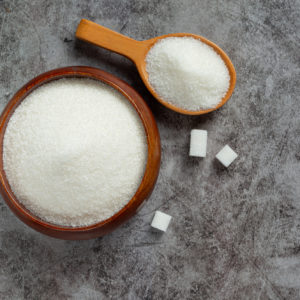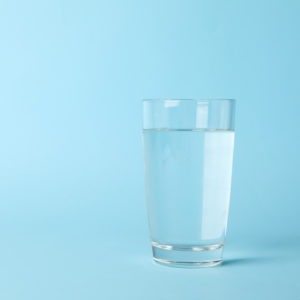-
Patient Resources
-
-
Services
-
-
Service Details
-
Proudly Part of Privia Health

Hotflashes | April 2021
Is Sugar to Blame?

For years, researchers have suspected that the typical Western diet, high in fat, animal protein, and sugar, and low in vegetables, legumes, whole grains, and fruit, plays a leading role in the high rates of inflammatory bowel disease (IBD). While fat and animal protein have traditionally been considered the prime suspects, a growing number of studies now point to sugar as a leading culprit.
Sugar is already well known for its pro-inflammatory effects on the body and its link to a number of diseases, including cardiovascular disease, obesity, cancer, and type 2 diabetes. And while the precise nature of the relationship between sugar and IBD remains unsettled, more and more data from animal studies points to sugar’s deleterious effects on the gut microbiome.
A study published in October 2020 in Science Translational Medicine found that mice who consumed a 10 percent sugar solution for a week (less than the typical 15 percent contained in most soft drinks) significantly altered the composition of gut microbiota in a bad way. Two types of mucus-degrading bacteria became more abundant, leading to erosion of the gut’s protective mucus layer, while quantities of “good” bacteria, like Lactobacillus, diminished, effectively setting the stage for colitis.
Fiber-rich foods like vegetables, legumes, whole grains, and fruits — mainstays of the Mediterranean diet — all encourage the production of short-chain fatty acids. And they’re just what a Western diet, with its taste for high-sugar foods and drinks, is missing.
Everydayhealth.com
Move Over Vitamin C

Move over, vitamin C. Zinc may be the new cold fighter in town. Many studies have shown that taking a zinc treatment may help shorten the duration of the common cold.
Zinc is considered a trace mineral, which means your body needs only a small amount of it to work properly. Most Americans get enough daily zinc in their diets. Zinc heals wounds and keeps your immune system humming and ready to take on threatening bacteria and viruses. An over-the-counter zinc supplement may help reduce the duration and the severity of the common cold — as long as you take it within 24 hours of the first sign of sickness.
Zinc lozenges are cold remedies that are often combined with vitamin C, whereas zinc supplements are fitting for people with a zinc deficiency. Zinc lozenges and nasal sprays directly interfere with the rhinovirus' ability to breed in the moist environment of the throat or nose, so taking a zinc lozenge or using zinc nasal spray have been shown to have the greatest anti-viral effectiveness.
Everydayhealth.com
Six Signs You Are Dehydrated

Every creature needs water not only to survive, but to thrive. Next time you are experiencing these signs and symptoms of possible dehydration think to yourself, "When was the last time I had a glass of water?"
- Bad Breath: Saliva has antibacterial properties, but dehydration can prevent your body from making enough saliva. If you’re not producing enough saliva, you can get bacterial overgrowth in the mouth, and one of the side effects of that is bad breath.
- Dry or Flushed Skin: A lot of people think that people who get dehydrated are really sweaty, but in fact, as you go through various stages of dehydration you get very dry skin.
- Muscle Cramps: When your body loses enough fluid, it’s unable to cool itself off adequately, leading to heat illness. One symptom to look out for is muscle cramps, which can happen while exercising, particularly in hot weather.
- Fever and Chills Are Symptoms of Heat Illness: Other symptoms of heat illness include fever and chills. You may sweat profusely while your skin is cool to the touch. Fever can worsen dehydration. The higher the fever, the more dehydrated you may become. Unless your body temperature decreases, your skin will lose its cool clamminess and then become hot, flushed, and dry to the touch. At this point, it’s important that you cool yourself down immediately and see a medical professional.
- Food Cravings, Especially for Sweets, May Just Mean You’re Thirsty: When you’re dehydrated, it can be difficult for organs such as the liver, which uses water, to release glycogen (stored glucose) and other components of your energy stores, so you can actually get cravings for food. While you can crave anything from chocolate to a salty snack, cravings for sweets are more common because your body may be experiencing difficulty breaking down glycogen to release glucose into the bloodstream to use as fuel.
- Headaches Could Be a Sign You Need to Drink More Water: Even mild dehydration can cause a dehydration headache and trigger a migraine headache. Although various factors besides dehydration can cause headaches, drinking a full glass of water and continuing to sip more fluids during the day is an easy way to ease your pain if, in fact, dehydration is a culprit.
Everydayhealth.com
